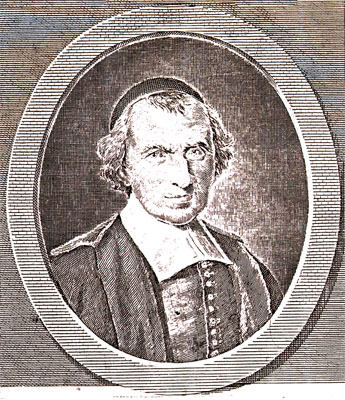
Jean Meslier
Originally, savage nations, ferocious, perpetually at war, adored, under various names, some God conformed to their ideas; that is to say, cruel, carnivorous, selfish, greedy of blood. We find in all the religions of the earth a God of armies, a jealous God, an avenging God, an exterminating God, a God who enjoys carnage and whose worshipers make it a duty to serve him to his taste. Lambs, bulls, children, men, heretics, infidels, kings, whole nations, are sacrificed to him.
The zealous servants of this barbarous God go so far as to believe that they are obliged to offer themselves as a sacrifice to him. Everywhere we see zealots who, after having sadly meditated upon their terrible God, imagine that, in order to please him, they must do themselves all the harm possible, and inflict upon themselves, in his honor, all imaginable torments. In a word, everywhere the baneful ideas of Divinity, far from consoling men for misfortunes incident to their existence, have filled the heart with trouble, and given birth to follies destructive to them. How could the human mind, filled with frightful phantoms and guided by men interested in perpetuating its ignorance and its fear, make progress? Man was compelled to vegetate in his primitive stupidity; he was preserved only by invisible powers, upon whom his fate was supposed to depend. Solely occupied with his alarms and his unintelligible reveries, he was always at the mercy of his priests, who reserved for themselves the right of thinking for him and of regulating his conduct.
Thus man was, and always remained, a child without experience, a slave without courage, a loggerhead who feared to reason, and who could never escape from the labyrinth into which his ancestors had misled him; he felt compelled to groan under the yoke of his Gods, of whom he knew nothing except the fabulous accounts of their ministers. These, after having fettered him by the ties of opinion, have remained his masters or delivered him up defenseless to the absolute power of tyrants, no less terrible than the Gods, of whom they were the representatives upon the earth. Oppressed by the double yoke of spiritual and temporal power, it was impossible for the people to instruct themselves and to work for their own welfare. Thus, religion, politics, and morals became sanctuaries, into which the profane were not permitted to enter. Men had no other morality than that which their legislators and their priests claimed as descended from unknown empyrean regions. The human mind, perplexed by these theological opinions, misunderstood itself, doubted its own powers, mistrusted experience, feared truth, disdained its reason, and left it to blindly follow authority. Man was a pure machine in the hands of his tyrants and his priests, who alone had the right to regulate his movements. Always treated as a slave, he had at all times and in all places the vices and dispositions of a slave.

I’ve despised religion, and seen it as a lie, since I was a child. Partly, I’m sure it’s because I was raised to be skeptical about many things, and grew up surrounded by historians. I’ve always wondered that it’s possible to be both religious and a historian; it seems that any understanding of religion through human history points to the obviousness that it’s a human invention. After all, streets paved with gold represents the aspirations of a time – why not “everyone gets a Lexus and a Swarovski iPhone”? Let the believers in the middle ages ask, “lolwhut?” until they finally figure it out. Or, you get a rocket car and a jet-pack.
It must have been very painful for Meslier to have this stuff in his head and be part of the machinery of religious exploitation. “Thus man was, and always remained, a child without experience, a slave without courage, a loggerhead who feared to reason, and who could never escape from the labyrinth into which his ancestors had misled him; he felt compelled to groan under the yoke of his Gods, of whom he knew nothing except the fabulous accounts of their ministers.” that was written by a minister. He must have been wracked with pain and shame and embarrassment, and chose to keep it secret his whole life.
